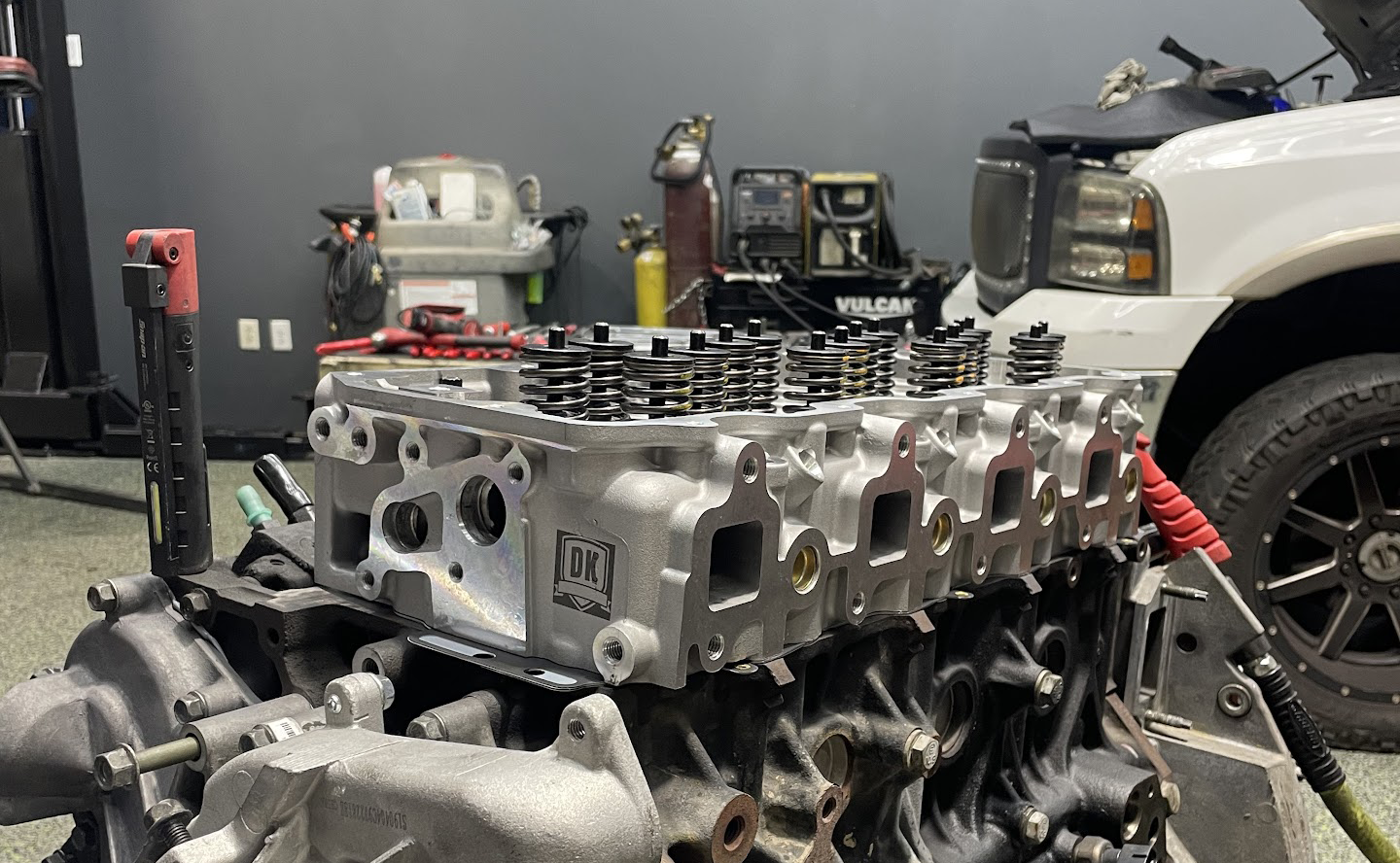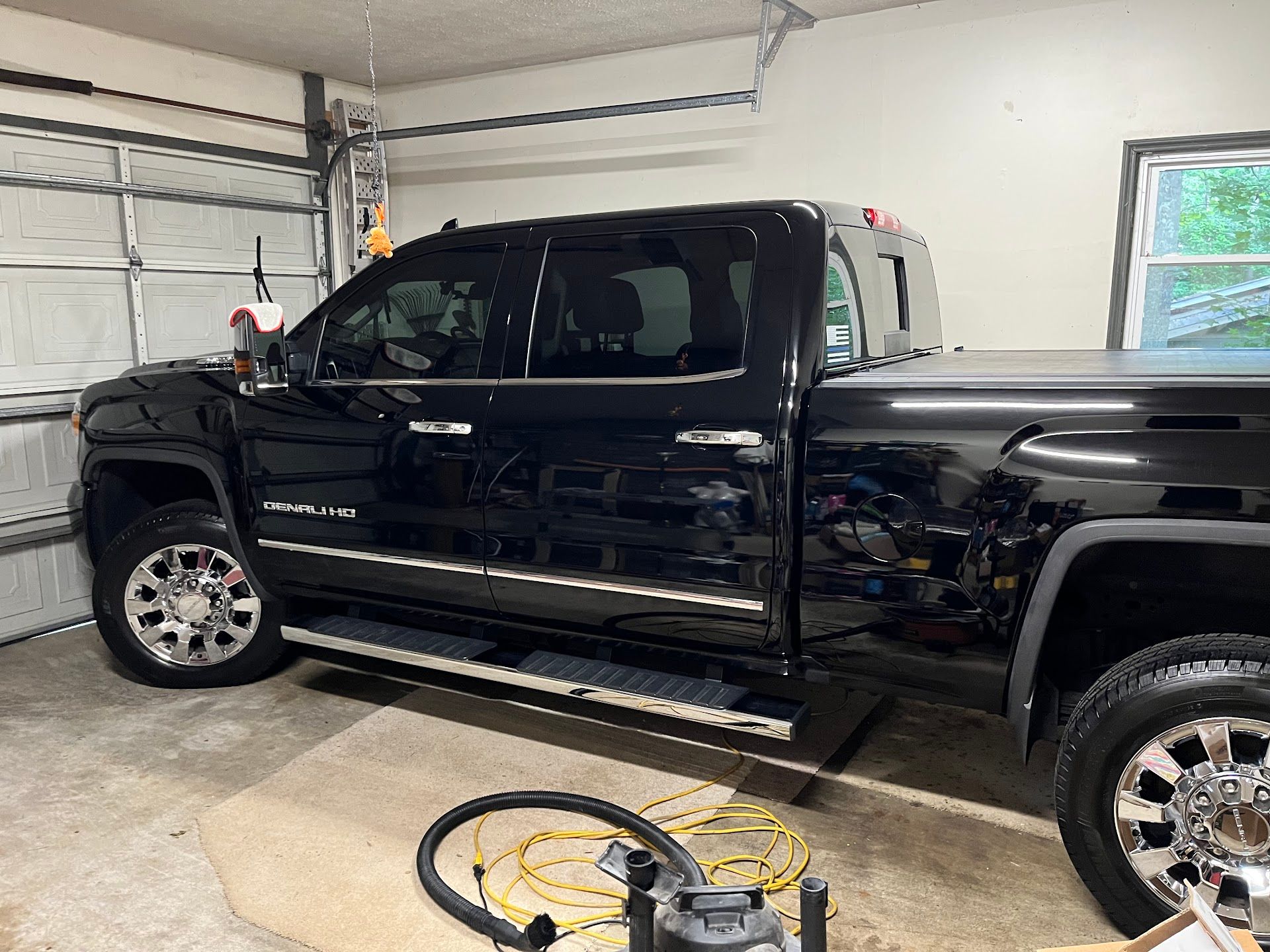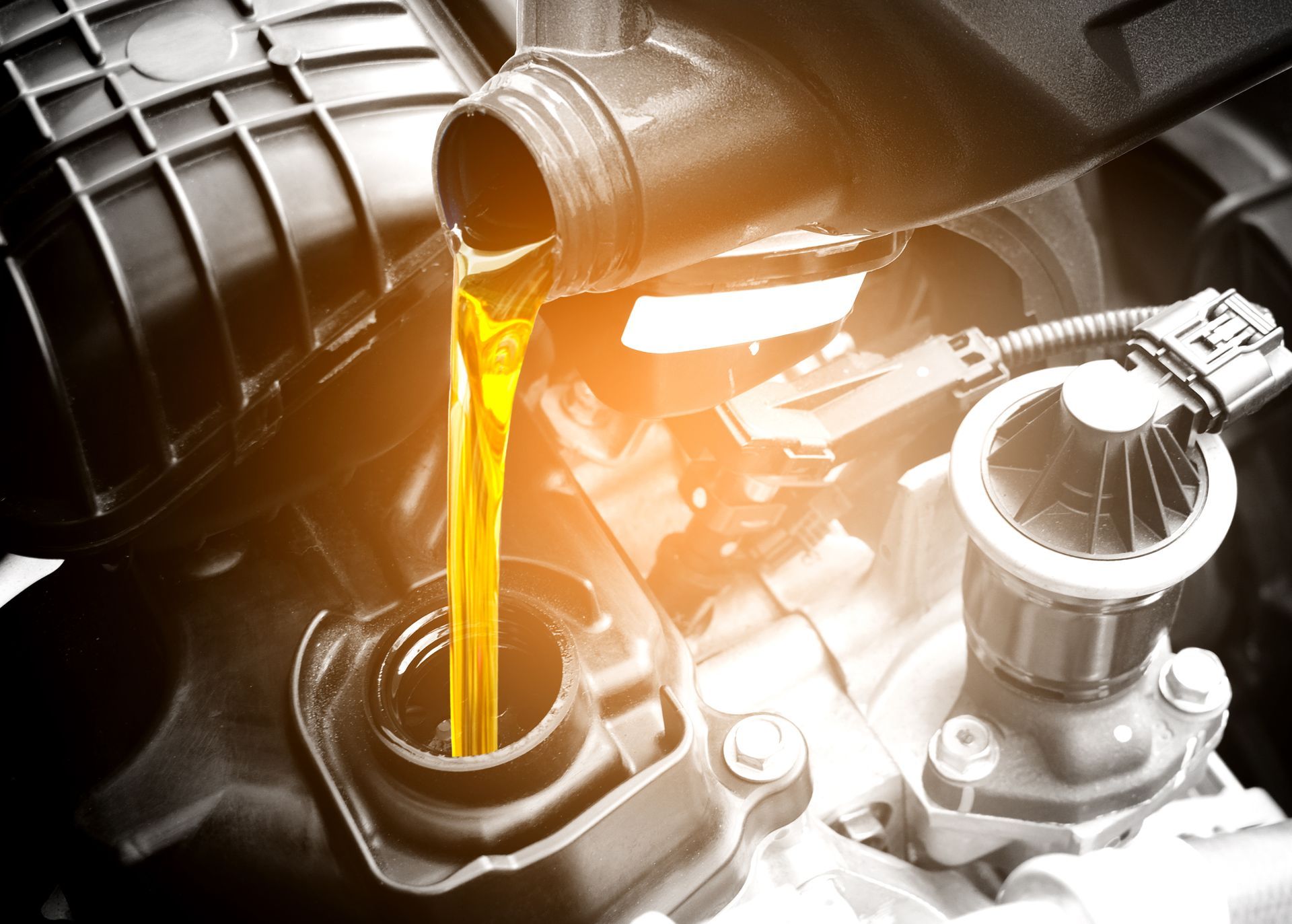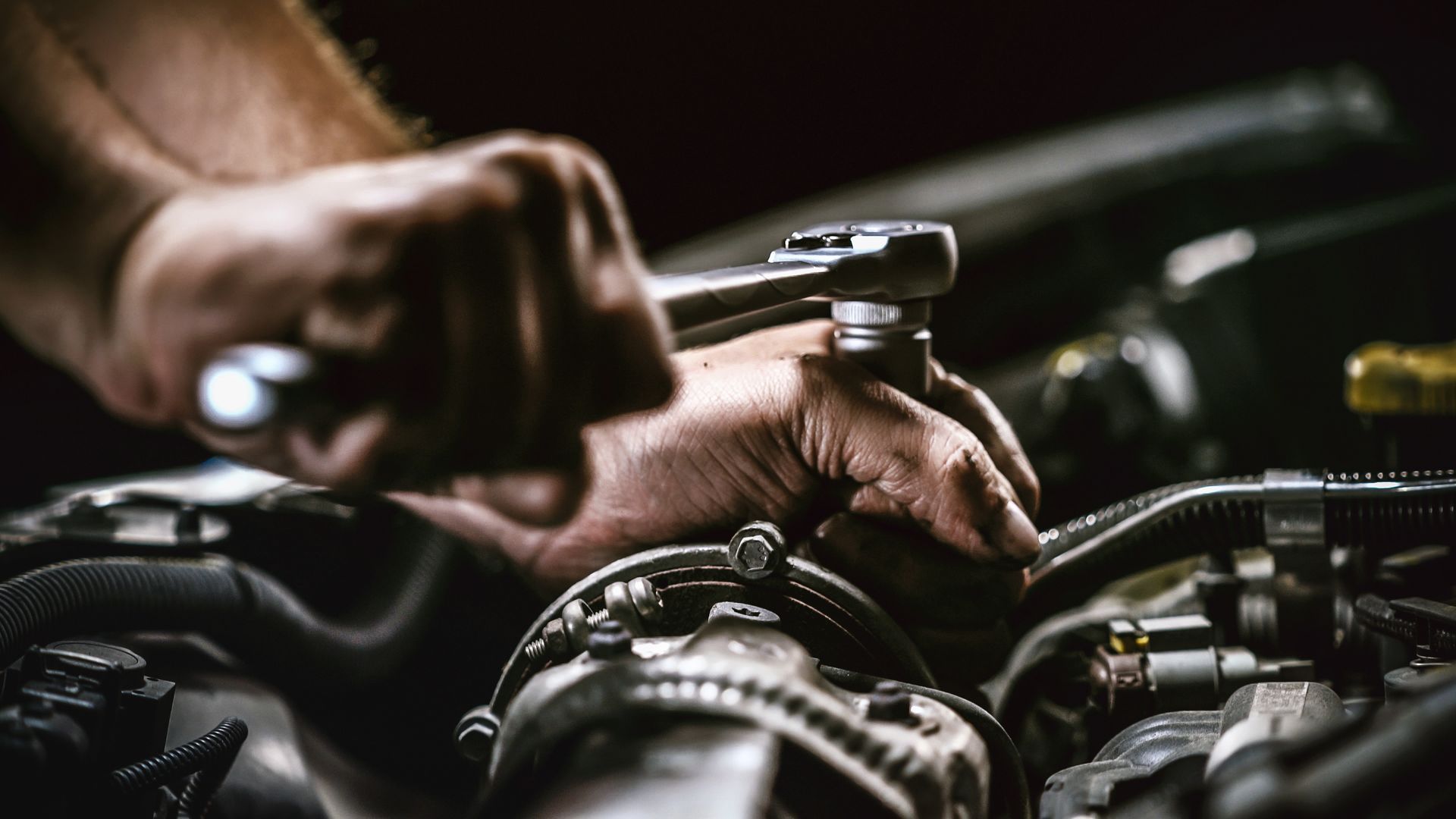Recognizing Brake Wear Warning Signs Following Summer Drives Around Woodstock
Summer driving around Woodstock puts serious stress on your vehicle's braking system. Between stop-and-go traffic on Highway 92, mountain trips to Blue Ridge, and countless shopping runs to Town Center at Cobb, your brakes have been working harder than usual. Add Georgia's intense heat and heavy summer travel, and you have conditions that accelerate brake wear significantly.
As summer winds down, it's crucial to recognize the warning signs that indicate your brakes need attention. Ignoring these signals could lead to dangerous brake failure or expensive repairs that could have been prevented with early detection.
Why Summer Driving Is Hard on Brakes
Georgia's summer driving conditions create the perfect storm for brake system stress. The combination of heat, heavy use, and specific driving patterns around North Georgia accelerates brake component wear beyond normal rates.
Summer brake stress factors:
- Extreme heat from Georgia's 95°F+ temperatures
- Stop-and-go traffic during peak vacation season
- Mountain driving on routes to Helen and Dahlonega
- Increased vehicle weight from vacation gear and passengers
- Extended highway trips followed by sudden city driving
- Air conditioning load affecting engine braking efficiency
These conditions cause brake pads to wear faster, brake fluid to break down quicker, and rotors to warp more easily than during moderate weather driving.
Visual Warning Signs You Can Check Yourself
Many brake problems show visual symptoms that don't require special tools to identify. Regular visual inspection can catch problems before they become dangerous or expensive.
Brake pad thickness inspection: Look through your wheel spokes at the brake pads. Most pads should be at least 1/4 inch thick. If the pad material looks thinner than the metal backing plate, replacement is overdue.
Rotor surface examination: Your brake rotors should have smooth, even surfaces. Look for:
- Deep grooves or scoring marks
- Rust buildup (especially after sitting during vacation)
- Blue discoloration indicating overheating
- Warped appearance or uneven thickness
Brake fluid level and color: Check the brake fluid reservoir under your hood. Fluid should be clear to light amber colored. Dark, dirty fluid indicates moisture contamination and the need for a brake fluid flush.
Sounds That Signal Brake Problems
Your brakes communicate their condition through various sounds. Learning to recognize these audio warnings can prevent brake failure and save money on repairs.
High-pitched squealing: This is often the first sign of brake pad wear. Most brake pads have built-in wear indicators that create a metallic squeal when pads get thin. Don't ignore this warning—it's designed to get your attention before damage occurs.
Grinding or scraping noises: If squealing progresses to grinding, you've waited too long. Grinding usually means the pad material is gone and metal backing plates are contacting rotors. This damages rotors and requires more expensive repairs.
Clicking or rattling sounds: These sounds often indicate loose brake hardware, worn clips, or damaged anti-rattle springs. While not immediately dangerous, they should be addressed promptly.
How Your Brakes Feel During Operation
Changes in brake pedal feel or vehicle behavior during braking often indicate developing problems. Pay attention to these sensations during your daily driving around Woodstock.
Pedal feel changes:
- Spongy or soft pedal: Usually indicates air in brake lines or worn brake fluid
- Hard pedal requiring extra force: May signal brake booster problems or glazed pads
- Pedal that sinks to the floor: Serious problem requiring immediate attention
- Pedal vibration or pulsing: Often indicates warped rotors from heat stress
Vehicle pulling during braking: If your car pulls left or right when braking, you likely have uneven brake wear, stuck calipers, or contaminated brake pads. This is especially common after summer driving in dusty conditions.
Dashboard Warning Lights and Systems
Modern vehicles have sophisticated brake monitoring systems that alert drivers to potential problems. Don't ignore these electronic warnings.
Brake warning light: A red brake warning light indicates serious problems like low brake fluid, parking brake engagement, or brake system failure. Stop driving immediately and have the system inspected.
ABS warning light: While your regular brakes may still work with an ABS light on, you've lost anti-lock protection. This is particularly dangerous on wet roads common during Georgia's fall rainy season.
Brake pad wear sensors: Many newer vehicles have electronic brake pad wear sensors that trigger dashboard warnings when pads need replacement.
Temperature-Related Brake Issues
Georgia's extreme summer heat creates specific brake problems that drivers in cooler climates rarely experience. These heat-related issues often become apparent as temperatures begin to moderate in fall.
Heat-warped rotors: Repeated heating and cooling cycles can warp brake rotors, causing pedal vibration and uneven braking. This is especially common after mountain driving or heavy stop-and-go traffic.
Brake fluid breakdown: Brake fluid absorbs moisture from Georgia's humidity and breaks down faster in extreme heat. Contaminated fluid reduces braking performance and can cause brake fade during heavy use.
Glazed brake pads: Excessive heat can cause brake pad material to harden or "glaze," reducing friction and braking effectiveness. Glazed pads often cause squealing and require replacement.
Specific Concerns After Summer Mountain Driving
If you've taken summer trips to North Georgia mountains, your brakes have endured particularly demanding conditions. Mountain driving creates unique wear patterns and problems.
Signs of mountain driving stress:
- Strong brake odor after descending grades
- Brake fade (reduced effectiveness) during repeated use
- Accelerated brake pad wear on the front axle
- Brake fluid discoloration from overheating
- Warped rotors from excessive heat buildup
When Professional Inspection Is Essential
While visual and auditory checks help identify obvious problems, professional brake inspection uses specialized tools to measure components precisely and test system performance safely.
Professional inspection advantages:
- Precise measurement of pad thickness and rotor wear
- Brake fluid contamination testing
- Caliper operation and seal condition assessment
- Brake line inspection for leaks or damage
- Complete system performance testing
Red flag symptoms requiring immediate professional attention:
- Brake pedal goes to the floor
- Vehicle pulls severely during braking
- Grinding noises during braking
- Brake warning lights on dashboard
- Burning smell after braking
- Brake fluid leaks under the vehicle
The Cost of Delaying Brake Repairs
Many Woodstock drivers postpone brake repairs due to cost concerns, but delaying necessary brake work often results in much higher expenses and safety risks.
Consequences of delayed brake maintenance:
- Worn pads damage rotors, requiring replacement instead of resurfacing
- Damaged rotors can harm calipers and other expensive components
- Complete brake system failure requiring emergency repairs
- Potential liability in accidents caused by brake failure
- Higher repair costs due to secondary damage
Brake Maintenance After Summer Stress
After a demanding summer of Georgia driving, your brake system benefits from proactive maintenance that extends component life and ensures continued safety.
Post-summer brake care:
- Professional brake inspection to assess wear levels
- Brake fluid flush to remove moisture and contaminants
- Rotor resurfacing if wear is within specifications
- Brake pad replacement before metal-to-metal contact
- Complete system cleaning to remove dust and debris
Don't Compromise on Brake Safety
Your brakes are your vehicle's most important safety system. After months of demanding summer driving around North Georgia, they deserve professional attention to ensure continued safe operation.
Protect your family's safety with professional brake service that addresses summer wear and prepares your vehicle for fall driving conditions. The ASE-certified technicians at Diesel David Inc specialize in complete brake system diagnosis, repair, and maintenance. Located at 10262 Main Street in Woodstock, we've been keeping local families safe on the road since 2015.
Call us at (770) 874-5094 to schedule your post-summer brake inspection, or visit our shop for comprehensive brake system service. With our 2-year/24,000-mile warranty, you can drive confidently knowing your brakes are properly maintained and ready for whatever the road ahead brings.









